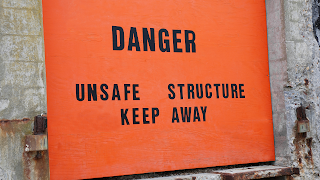The Self-Silencing Effect
Did you grow up believing that anything you said was wrong? It did not matter what someone did to you; you were awful for talking about it in any way. Unfortunately, this continues to haunt us as adults today. Most of us don't seek therapy to overcome the imprint left by our parents because they make us feel bad for speaking our truth.
In my childhood, my family told me and convinced others I had the worst attitude ever, so speaking up later in life was crippling for me. This has always been how I have been portrayed and felt about myself. My past made me keep quiet while I got trampled over, so I did not want to come off as an evil person by setting boundaries.
During a brief stay with my aunt and her boyfriend in Madison, TN, that man spoke to me in the most deplorable ways, and my aunt tolerated it. One evening after school, he entered their apartment, asking me what I was watching on TV. After I answered him, he told me, "You won't be shit watching this bullshit." I watched The Young and the Restless and was attacked for it. Responding in a desired way would have resulted in me becoming the problem, so I remained quiet.
I hated being there with them, and I was thrilled when they came up with a bogus reason to send me back to Mississippi. He was emotionally, mentally, and verbally abusive, and the way my aunt protected him, he may have been physical towards her. I was not surprised by her behavior since the women in my family are male-centered pick-me's. They would sacrifice their children for the likes of men. Even after she escaped him years later, I was still to blame for the way things happened to me. My aunt, the only one I trusted back then, smeared my name just like my mother had done. My own family shattered me, so it was not a surprise when others did.
It was always me. It only took me a few therapy sessions to understand the level of narcissism I had been dealing with all my life. After years of experiencing abuse for saying the wrong thing or trauma around using my voice, I adopted self-silencing as a way to protect myself. I was told to shut up; my feelings were ignored; I was made to believe using my voice meant I had a nasty attitude, and I repressed my feelings and what I had to say to protect those hurting me. Self-silencing led to the depression I spoke of in my book Alone In the Dark. My self-worth and esteem were so low I did not believe I would recover. Things were so bad for me mentally that I felt like I would be stuck there; what I hated about them the trauma produced in me.
The ridicule I was subjected to when I would attempt to articulate my thoughts, ideas, or anything I was interested in had me in a chokehold. I started to dislike talking to anyone about anything.
I did this at school, in my career, ministry, and in romantic relationships. How I felt about myself caused me to defer my needs to uphold others for validation. I became the yes person, which birthed an angry person. I allowed people to do and say whatever they wanted because the moment I tried to tell anyone off, I could hear my family telling everyone how nasty my attitude was. I took so much off people that reliving and writing about those events is painful.
On my journey to rediscover myself, I had to regain self-confidence. Being put down for so long turned into me putting myself down before others could. As I regained my confidence, I began speaking. On the journey, I had to unlearn harmful narratives that kept me in bondage.
There is a difference between peace and silence.
SPEAK UP!
.png)

.png)
.png)
Comments
Post a Comment